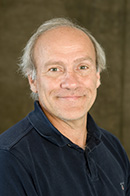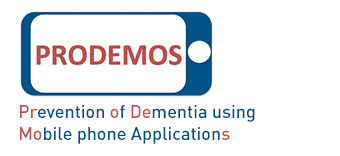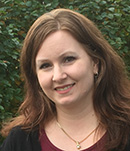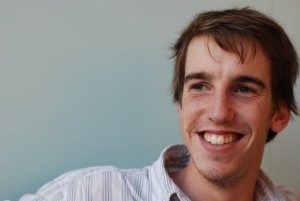Karolinska Institute
Karolinska Institutet (KI) is one of the world´s leading medical universities, and accounts for over 40 per cent of the medical academic research conducted in Sweden. With its close relationship to the clinical milieu KI has excellent prerequisites for sustaining high quality research and education. KI has collaborative agreements with a large number of universities the world over, as well as with companies in the biomed and biotech sectors. Research at KI spans the entire medical field, from basic experimental research to patient-oriented and nursing research. Research at KI is conducted in 22 departments, most of which are situated or adjacent to Stockholm’s teaching hospitals, creating ample opportunities for translational research. Since 1901 the Nobel Assembly at KI has selected the Nobel laureates in Physiology or Medicine.
 Anders Wimo´s research areas are geriatric health economy and epidemiology. He is the coordinator of the steering committees of the population project Swedish National study on Aging and Care (SNAC) and a member of the Swedish dementia quality assurance register (SveDem). Professor Wimo has written several reports for the National Board of Health and Welfare and he was one of the experts of the Swedish Dementia national guidelines in 2010 as well in its update. He is also a member of the European Alzheimer Disease Consortium (EADC), he is an expert for Alzheimer Europe and has participated in several EU projects.. He co-authored Alzheimer Disease International´s Word Alzheimer Report 2010 (the global economic burden of dementia) and its update in 2015. He co-authored WHO´s report Dementia – a public health priority from 2012 and he participates in WHO´s GDO project. He has written more than 300 papers, reviews, book chapters and reports (150 original papers).
Anders Wimo´s research areas are geriatric health economy and epidemiology. He is the coordinator of the steering committees of the population project Swedish National study on Aging and Care (SNAC) and a member of the Swedish dementia quality assurance register (SveDem). Professor Wimo has written several reports for the National Board of Health and Welfare and he was one of the experts of the Swedish Dementia national guidelines in 2010 as well in its update. He is also a member of the European Alzheimer Disease Consortium (EADC), he is an expert for Alzheimer Europe and has participated in several EU projects.. He co-authored Alzheimer Disease International´s Word Alzheimer Report 2010 (the global economic burden of dementia) and its update in 2015. He co-authored WHO´s report Dementia – a public health priority from 2012 and he participates in WHO´s GDO project. He has written more than 300 papers, reviews, book chapters and reports (150 original papers).
Within KI, Professor Anders Wimo has expertise in health economic evaluation of dementia and he is thus well positioned to evaluate the cost-effectiveness of the mHealth platform on overall dementia risk in the PRODEMOS study.

 Miia Kivipelto is Professor of Clinical Geriatric Epidemiology at Karolinska Institutet and a senior geriatrician at the Karolinska University Hospital. Miia Kivipelto is one of the leading experts on Alzheimer’s risk factors, early diagnoses and disease prevention. She is a principal investigator for the Finnish Geriatric Intervention Study to Prevent Cognitive Impairment and Disability (FINGER), one of the first multi-domain intervention studies in the world aimed at preventing or postponing dementia. For PRODEMOS, she will contribute knowledge and experience on multi-modal interventions for the prevention of cognitive decline and disability, especially based on the FINGER study.
Miia Kivipelto is Professor of Clinical Geriatric Epidemiology at Karolinska Institutet and a senior geriatrician at the Karolinska University Hospital. Miia Kivipelto is one of the leading experts on Alzheimer’s risk factors, early diagnoses and disease prevention. She is a principal investigator for the Finnish Geriatric Intervention Study to Prevent Cognitive Impairment and Disability (FINGER), one of the first multi-domain intervention studies in the world aimed at preventing or postponing dementia. For PRODEMOS, she will contribute knowledge and experience on multi-modal interventions for the prevention of cognitive decline and disability, especially based on the FINGER study. Jenni Kulmala, PhD, Docent, is an Assistant Professor in Karolinska Institutet, Sweden. She has a long-standing background in the field of aging, epidemiology and dementia/Alzheimer’s disease research. She has expertise in data collection for survey research and randomized controlled trials (e.g. FINGER trial). She has also experience in implementation evaluations and qualitative research methods. For PRODEMOS, she will contribute knowledge and experience on multi-modal interventions for the prevention of cognitive decline and disability, especially based on the FINGER study.
Jenni Kulmala, PhD, Docent, is an Assistant Professor in Karolinska Institutet, Sweden. She has a long-standing background in the field of aging, epidemiology and dementia/Alzheimer’s disease research. She has expertise in data collection for survey research and randomized controlled trials (e.g. FINGER trial). She has also experience in implementation evaluations and qualitative research methods. For PRODEMOS, she will contribute knowledge and experience on multi-modal interventions for the prevention of cognitive decline and disability, especially based on the FINGER study.